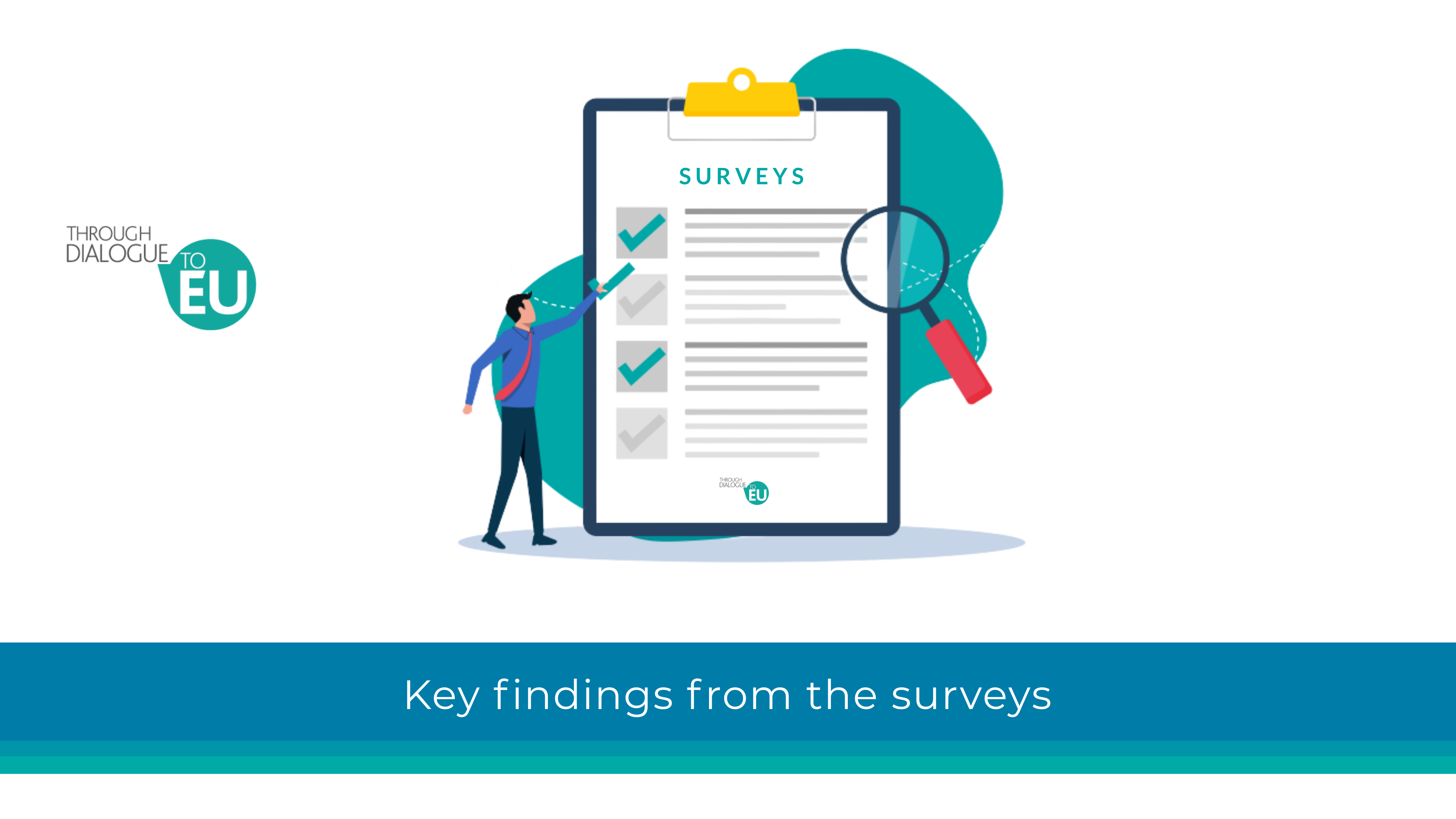In the form of infographics, the project “CSO Dialogue – Platform for Structural Participation in EU Integrations” presents key information from the survey on civil engagement in the Republic of North Macedonia with additional overview on the Covid-19 pandemic and the additional survey conducted among civil society organizations.
The survey conducted among 113 civil society organizations in the period November – December 2020 shows that involvement of CSOs in activities for creation of policy proposals and measures is marked by a decline during the Covid-19 health crisis in 2020, compared to the pre-crisis period. In the period 2018-2019, 76% of civil society organizations were involved in such activities, while during the crisis period (2020) their share accounted for 55%.

The survey showed that 73% of civil society organizations are members of civil society networks. Most frequently, they participate in national networks (50%), and rarely in local networks (13%). Moreover, survey results show that participation in civil society networks has significant impact on creation of policy proposals and activities.

The survey among citizens was conducted on representative sample of 1,300 respondents in the period 14 – 29 October 2020. Survey results show that 99% of citizens reported knowledge about Covid-19 prevention measures, while 98% of them indicated compliance with such measures. Almost every second citizen (45%) knows a person who was infected with Covid-19 (most often, these are relatives or acquaintances). The share of respondents that do not known somebody infected with Covid-19 is smaller among the eldest cohort of citizens, i.e. those above the age of 60 years (29%) and among respondents living in rural areas (37% in rural areas versus 50% in urban areas).

The level of satisfaction with the place of residence and the country directly affects citizens’ perceptions about their ability to influence decisions taken by local or national institutions. Among dissatisfied citizens, more than 80% believe they cannot exert any influence on decisions, while this share accounts for 52% and 64% among citizens who are very or partially satisfied.

The country’s membership in the European Union is important for 48% of citizens, while it is not important for 24% of them. The remaining 28% of citizens indicated that the country’s membership in the EU is neither important nor unimportant for them.

All information presented on these infographics are collected under the project “CSO Dialogue – Platform for Structural Dialogue in EU Integrations”.
